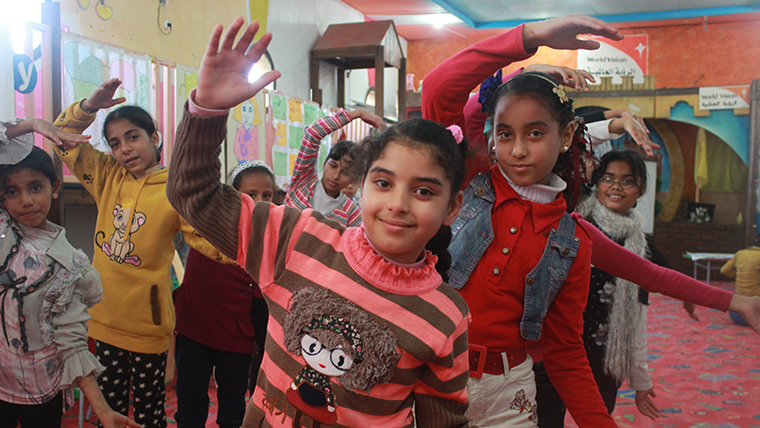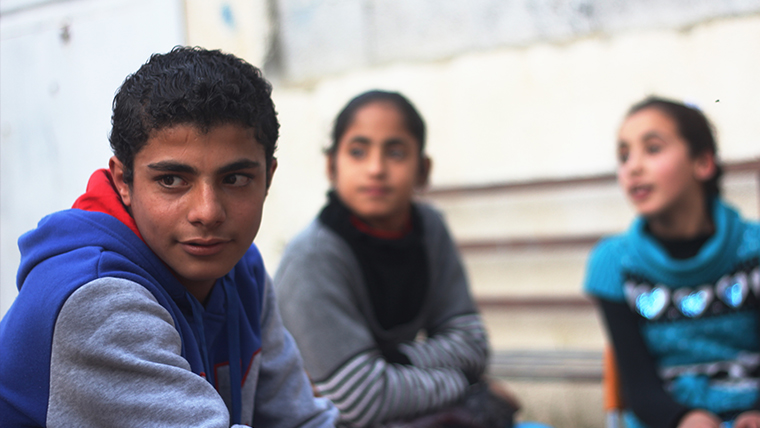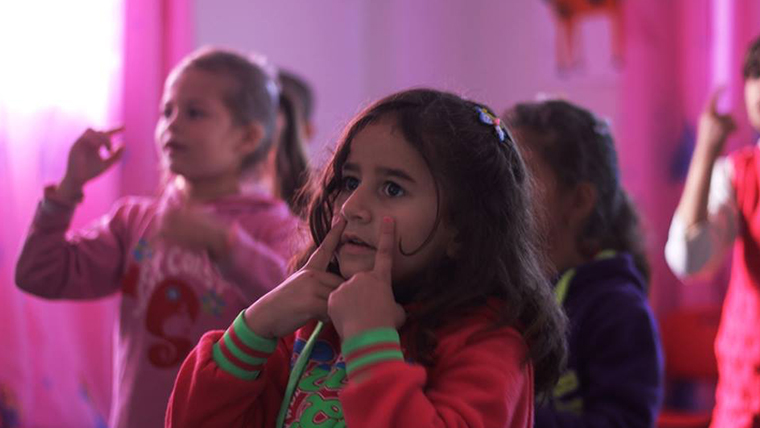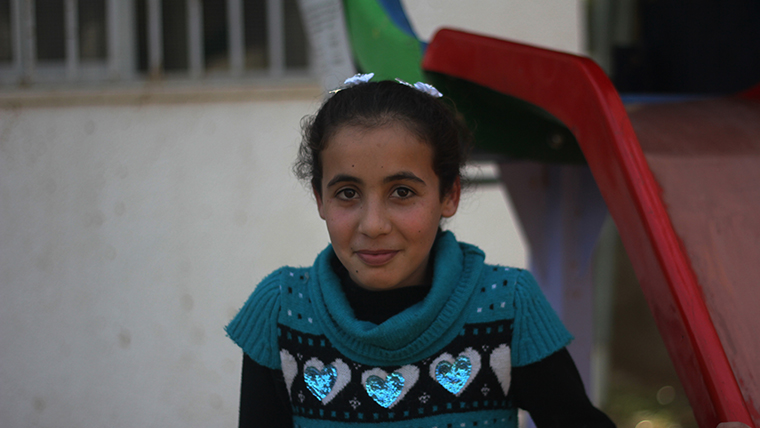After a traumatic year, the children of Gaza look to 2015

No child deserves to witness violence, let alone experience it firsthand. The outbreak of hostilities this past summer made last year one of the worst the people of Gaza had ever experienced. As is often the case, it was children who suffered the most.
Seven year-olds in Gaza have already witnessed the atrocities of three wars in their short lives. Issues such as malnutrition, restriction of movement and lack of proper medical care are among the many problems that have been affecting the lives of Palestinian children in Gaza, and the most recent spate of violence has not helped.
World Vision has been working to improve the lives of children in Gaza for many years now, and has stepped up its efforts in response to the recent violence. Many thousands have lost relatives and were made homeless, others have been injured and hundreds of thousands have been left traumatized. World Vision has been working to provide psychological support and to restore some form of normality to the lives of these children.

“We lost everything; the entire neighbourhood was destroyed and our tree was uprooted. My cousins and my friends were killed and I was left alone.” says Mousa, aged 12.
“However, after the war, I have decided to go on with my life.” Mousa is one of the children who benefits from the Child Friendly Spaces set up by World Vision throughout Gaza, “I dance Dabka very well. I intend to be the best in Dabka dancing.” Mousa grins, before turning to more scholarly pursuits. “In 2015, I want to study harder in order to achieve my dream of being a teacher in an elementary school to educate children about their rights.”
It’s amazing to see the determination of these children and their eagerness to begin a new life. Most of them have horrifying memories of the war, and almost all of them lost something that they cherished.

“When I went back, I couldn't find my bed - even the wall where I wrote my name and hung my picture disappeared.” Samah, 12, describes what she saw when she went back to check on her home with her family. “I found my doll but I couldn't find her clothes,” she remembers sadly. “I hope 2015 brings back my house and my toys.”
It’s that hope that sustains them; the hope that their future will be brighter and tomorrow will be better than today, simply because it couldn’t get any worse.
“In spite of the destruction, I practiced reciting poems when I was in the shelter in order to help others relieve their pain and forget about the tragic reality,” says Bisan, 13. “In 2015, I hope to develop my talent in reciting poems and represent my country all over the world.”
For many children, the ‘psychological first aid’ they receive is a huge help in processing and overcoming all they’ve seen.

“I was very happy when I saw the clowns and the young men and women who used to visit us, helping us feel better,” says 12 year old Aseel, recalling the first days of the war in the shelters.
The support and activities make a huge difference and the brief moments of laughter and fun they experience at Child Friendly Spaces remind children of a time before the war. The freedom to play and express themselves helps them realize that there is more to life than the crowded classrooms of the UN schools. “Now I try to return to my study. I want to be the best student in my class next year,” Aseel plans with a smile.
Each child has a different wish for 2015, but they all hope it will be better than 2014. We truly hope that 2015 is kind enough to fulfil some of their wishes.